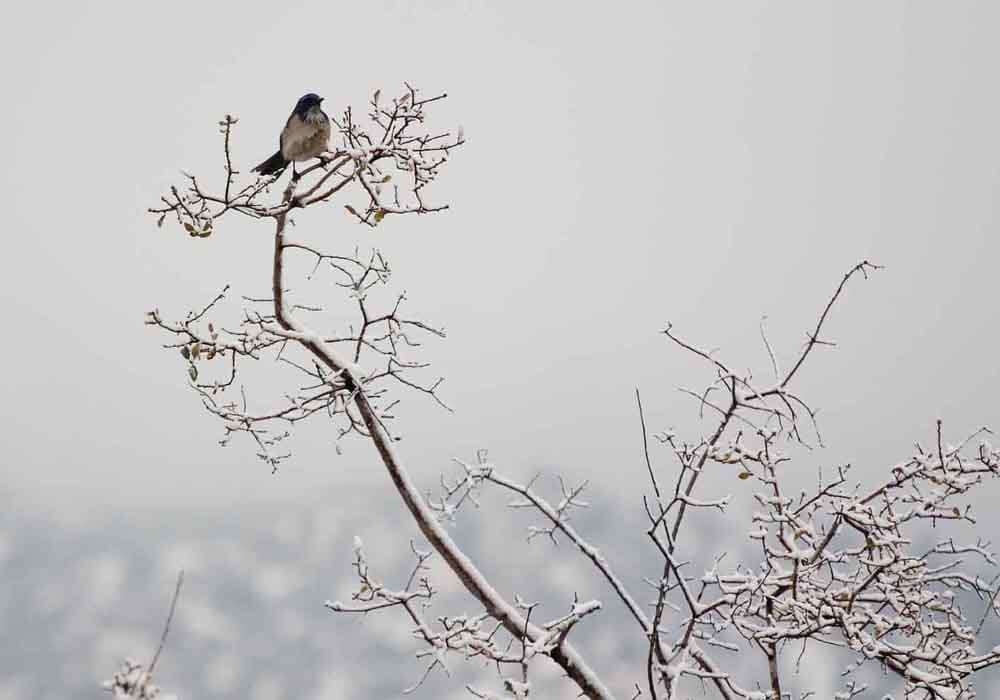Why Are the Birds So Loud?
Is It Your Imagination?
Or Might There Be A Reason Behind It?
I'm sure many have had an experience of pulling up to a friend's or our own house and being greeted by an overzealous chorus of bird noises. While it may seem a pleasant enough noise at first, the volume can quickly become annoying making you wonder why are the birds so loud?
Birds chirp extra loudly to compensate for noise pollution. The more noise pollution there is in your area, the louder birds will chirp and sing songs so that other birds can hear more clearly. When there is less noise pollution, there is less noise for them to compete with and appear quieter.
We've all experienced that first moment when you're trying to enjoy a lovely peaceful weekend morning. Then a bird hops in your window and starts loudly chirping away, but there's excellent reasoning behind it. In this article, we'll look at some of the reasons behind birds being so loud and the importance of being able to be heard by other birds.

Birds React to Noise Pollution
As overdevelopment encroaches on natural habitats, both animal and human lives are increasingly affected by noise pollution.
While humans have long habituated to an urban environment filled with the sounds of cars and construction, it's hard not to notice the environmental effects of noise pollution on wildlife.
In a study published in 2012, researchers observed birds in a lab exposed to man-made noise. Their loudness was measured using a small sensor attached to their body that detected the song frequency and volume.
The results showed that, as predicted, the more susceptible their song was to interference from urban noises, the louder they sang. Based on these findings, researchers concluded that excessive noise is likely a factor in making birds sing louder than usual.
This can easily be translated into a secondary hypothesis: if birds' songs become louder due to noise pollution, people will perceive them as more invasive or annoying than usual. In other words, noisy birds mean more vocal complaints from people.
These changes in animal behavior have been observed in many different bird species worldwide, indicating that man-made noise has widespread effects on wildlife.
It turns out that noise pollution is a bigger problem than most realize–it's not just road traffic, construction, and loud parties. In fact, our everyday living habits contribute to the noise pollution problem in ways that can initially seem subtle which is one of the reasons why are the birds so loud...or at least seem that way.
Some positive news is that we can help our feathered friends by reducing noise pollution around us. We don't have to live in a perfect soundscape, but we should try to keep noise levels down by limiting our use of appliances that produce loud noises and avoiding unnecessary construction work.
If you're trying to get away from noise pollution, you may want to consider moving somewhere quieter, but if you want to stay where you are, you can undoubtedly help your neighborhood birds by making minor changes in your daily habits.
Birds Rely on Their Chirps for Communication
It's easy to think that bird chatter is just to sound pretty and maybe even for enjoyment. But birds aren't just chirping for fun. In fact, their chirps are extremely important, even necessary for their survival.
Birds depend on their songs and calls for communication with each other. Different bird species use different combinations of chirps and songs to communicate in the air, and the sounds can travel long distances across the sky.
Different birds use different kinds of calls depending on the information they're trying to communicate. Some birds use specific calls to attract mates and defend their territory, while others use more warning calls when they sense danger nearby. Birds even have distinct alarm calls that let other birds know when predators are nearby.
In many different bird species, the male and female have very different calls they use to communicate. The males' songs are often longer and more complex than the females' shorter calls, but both are necessary for a healthy population of birds in your backyard or nearby forest.
Birds need to hear their own calls to make sure they're making them loud enough so other birds can hear them. Their ears allow them to listen to sounds beyond their own species too. Birds are very aware of their surroundings, and noise pollution threatens their survival.
Even though we may find it bothersome and irritating, birds would have a hard time without making some noise from time to time. This is incredibly accurate when they have other man-made noises to compete with. Birds will appear louder when there's more noise pollution because they have more noise to contend with to be heard.
So if you've been annoyed and wondered why are the birds so loud lately, be glad you've got such an excellent backyard habitat for them!
Why Are Birds So Loud in the Morning?
During the early mornings, the world is at its quietest. This silence enables sounds like birds singing to travel further and is more likely to be perceived as loud. Birds are most vocal in the morning because it's when their surroundings are at their darkest, providing protection from predators.
Why Are Birds So Loud at Night?
Hearing a bird chirping in the darkness is just them talking. Birds communicate in a different way than humans do, but chirps aren't random at all. Birds chirp at night to communicate with other birds, like during mating season, warning each other of predators or defending their territory.
Why Are The Birds So Loud...Final Thoughts
While you may not have noticed, the volume of our feathered friends has increased over the past decade. The reason? They've been getting louder to compensate for the noise we make.
Noise pollution is drowning out our avian friends' ability to communicate with one another, leading them to sing louder to communicate over the din of human activity.
Our modern lifestyle requires that birds adapt to closed windows and air conditioning systems that keep them from nesting around our homes. But there exist several ways that you can reduce your impact on these creatures.
Back To The TOP Of This
Why Are The Birds So Loud Page

About the Author...
Richard Worden, a dedicated bird lover for over 20 years, I love to share my in-depth knowledge and passion for birds. Read more About Me and my expertise in this field.
- We Know Birds HOME ›
- Bird Behavior Facts and Information ›
- Why Are The Birds So Loud?



